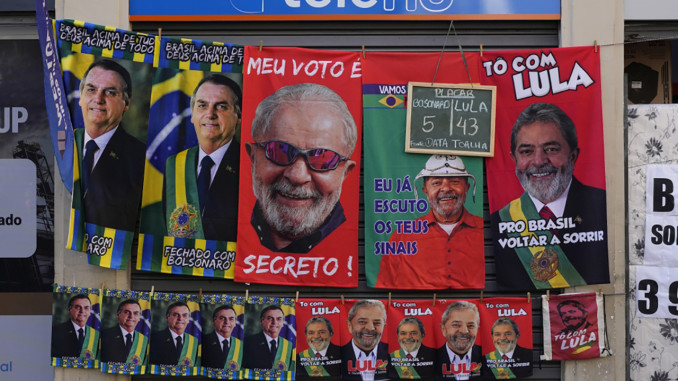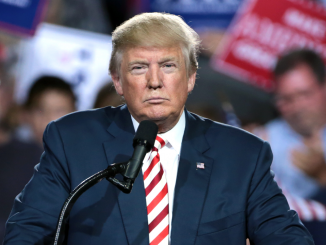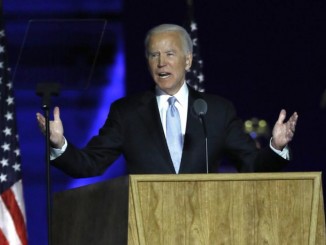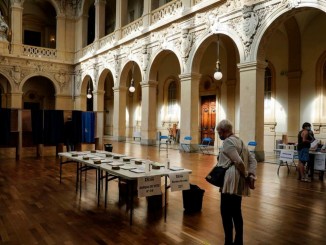
November 1, 2022, Editorial of the Workplace Newsletters of the Etincelle fraction of the New Anticapitalist Party (NPA) in France, translated from French.
With 50.9% of the vote, Lula, the candidate of the Brazilian left, won against the far-right President, Jair Bolsonaro. Barely two million votes separate the two candidates out of 128 million voters in this continent within a continent. One can understand the relief of a large part of the population following the defeat of this Tropical Trump on social and political grounds, but the solutions of the left do not foretell anything good for the working classes.
A giant with feet of clay
In the globalized capitalist world, Brazil is the leading exporter of beef and has a leading position in the market for soybeans, coffee and many other essential foods. This is to the advantage of the imperialist multinationals and the big landowners who are Bolsonaro’s base, while it leaves the working class increasingly in misery. Social inequality is at its highest.
The Brazilian bourgeoisie has turned towards agricultural exports that have destroyed industrial employment, ruined the poor peasants, and plundered the Amazon by devastating the largest forest in the world (a devastation that the multinationals which import these products are also responsible for). This immense reserve of plant material is losing its capacity to produce oxygen at a dramatic rate. But this oxygen is being breathed in Brazil but also here in France: the consequences of these policies affect people all over the world.
Is the left the final protective fortress?
Among the working classes, Lula remains proud of his past as a union activist against the fierce dictatorship of the 1980s. His personal prestige has survived in spite of the measures he took in favor of employers, and those he took against the workers when he was in power, and even his corruption scandals. He is careful to maintain a certain distance from the party he founded, the Workers’ Party, which is now highly discredited. But he is also keeping his distance from the trade unions and popular struggle collectives, and he is emphasizing his closeness to the employers’ milieu. In these recent elections, he allied himself with a right-wing politician and made him his vice-president to reassure the business community. He has courted religious circles and has proclaimed his opposition to abortion. It is not surprising that the international bourgeois economic press welcomed his victory as a hoped-for sign of stability.
Lula’s program does not mention wages, the fight against the high cost of living, the fight against the violence of the rich that attacks left-wing activists and indigenous peoples. Although Lula retains great prestige among the poorest workers, abstention remained high and, above all, Bolsonaro gained more than six million votes between the two rounds of elections. The far right is campaigning with the open support of the evangelists on the ground, and the more discreet support of important sectors of the army, mobilizing all the new rich, and apprentice-fascists. The left is only relying on institutions, without any social mobilizations to guarantee a mere promise of justice for the majority.
Where is Brazil going?
Lula is certainly president. But Bolsonaro has won first place in Parliament and the Senate, and one of his supporters has become Governor of Brazil’s economic heartland, the state of São Paulo. Bolsonaro’s silence after losing the presidential election raises the specter of a power grab. Lula’s only “institutional” asset is the support he receives from part of the Brazilian bourgeoisie and, above all, from the leaders of the great imperialist powers, which no doubt is making Bolsonaro hesitate. But this leaves the workers of Brazil without their own path forward, leaving their fate in the hands of imperialist institutions and leaders.
Fortunately, Brazil has a strong tradition of immense struggles among the landless farm workers. It still has thousands of activists who could break with this institutional policy and move back to the ground of revolutionary struggles and ideas. French leftist politician Mélenchon welcomed Lula’s victory, citing him as “an example to follow.” We will think twice about that. Because if there are no mobilizations, Lula will continue to shower billions of dollars on Brazilian employers, including those who are responsible for deforestation. As for the victims of famine in Brazil, they will only get crumbs.




